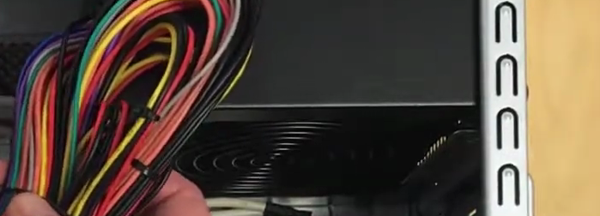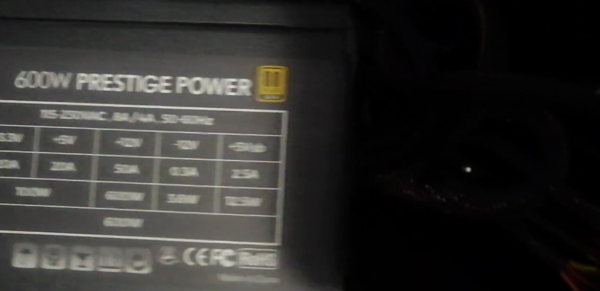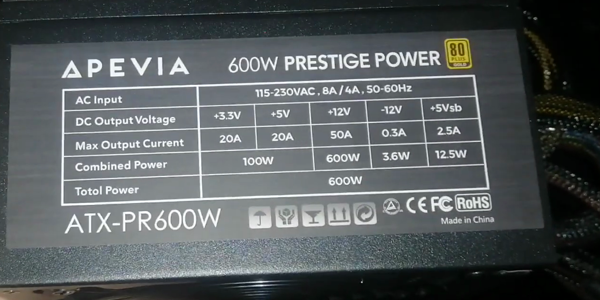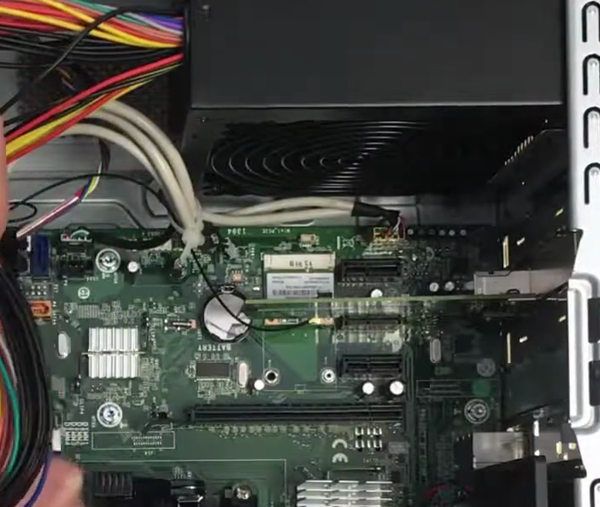Note: As an Amazon Associate I earn from qualifying purchases.
My thoughts on using the Apevia SPIRIT600W 600W ATX Power Supply with 120mm Fan (2024)
Introduction
I recently purchased the Apevia SPIRT600W ATX Power Supply for my mid-range gaming PC. With a 600W output, it appeared to be a suitable choice for my setup. In this review, I will discuss my installation experience, its performance, and overall value.
Specifications
| Property | Value | Property | Value |
|---|---|---|---|
| Model Name | spirit, spirit600w | Brand | Apevia |
| Compatible Devices | Personal Computer | Connector Type | ATX |
| Output Wattage | 600 Watts | Form Factor | ATX |
| Wattage | 600 watts | Cooling Method | Air |
| Item Dimensions LxWxH | 6.3 x 5.91 x 3.35 inches | Item Weight | 3.79 Pounds |
Photos
Click on photos to enlarge them:
Prices
Check prices of the Apevia 600W ATX Power Supply on:
Power Supply Specifications
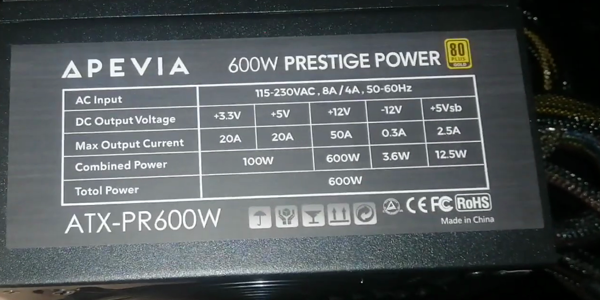
When diving into the specifications of the Apevia SPIRIT600W ATX Power Supply, there’s a lot to consider. Firstly, the 600-watt output is ample for mid-range gaming and business systems. It supports a broad spectrum of CPUs, including Dual/Quad/Multi-core, which provides flexibility when upgrading or building new systems. Additionally, its single 12V output caters well to high power consumption components.
Here’s a quick rundown of its key specs:
Output Wattage: 600 Watts
Connectors: Includes a main 20/24pin, a 4+4pin 12V, dual PCI 6+2pin, multiple SATA, and Peripheral
Form Factor: ATX, a standard that fits most cases
Cooling: A 120mm black fan that’s auto-thermally controlled
Dimensions: 6.3 x 5.91 x 3.35 inches
Now, while these features are in line with other power supplies in the same performance bracket, I must note the heavy-duty protections—like Over-Voltage, Under-Voltage, and Over-Temperature Protections—give me a sense of security. However, it’s crucial to mention that the pre-installed black sandblasted casing may not fit everyone’s aesthetic preferences, given that it doesn’t seek to stand out visually.
Operationally, this isn’t a modular power supply—meaning, it comes with all cables attached. Some may find this crowded, but I appreciate that it includes every connector you might need without additional purchases. Nevertheless, the all-black cables, while sleek, can be a bit of a hassle to sort and connect correctly without proper labeling. A voltmeter is handy if you plan on altering or splicing the cables for custom setups.
Despite the non-modular design, I’ve found the cable lengths to be adequate for my build. The mesh-style cover over the cables is a nice touch that avoids the cheap “ketchup and mustard” cable look, which often clashes with most build aesthetics. On the downside, the fan’s noise level can be louder than expected, especially when compared to more expensive models from competitors. It won’t wake the neighbors, but it’s not the library-level silence some might hope for.
In terms of size and ease of installment, the SPIRIT600W fits comfortably in full-size cases and doesn’t require any gymnastics during setup. It’s a bit of a mixed bag, though—I appreciate necessities like the ability to split connectors for various power requirements, but a longer cable for the 4+4 CPU power would be ideal.
All considered, the Apevia SPIRIT600W strikes a balance between ample functionality and price-conscious value. While not perfect, it’s been a reliable addition to my setup, supplying consistent power without the frills of higher-end units.
Connectivity and Compatibility

When evaluating the Apevia SPIRIT600W ATX Power Supply, I particularly focused on its connectivity and compatibility aspects. These are important as they determine how well the PSU will integrate with the various components of one’s PC build. Here’s a breakdown of what I found notable:
Multiple Connectors: It comes with a satisfactory range of connectors, including a 20/24pin for the main power, a 4+4pin 12V, dual PCI 6+2pin, four SATA, and four peripheral connectors. This breadth of connectors means it can support a variety of builds without necessitating additional adapters.
Splitting Ability: The 8pin CPU and PCI-E GPU connectors can be split into 4+4 and 6+2 configurations respectively. Even the 24pin motherboard connector can turn into a 20+4 pin. This versatility ensures compatibility with both older and newer motherboards and graphics cards, which is a substantial plus.
Cabling: Though not modular, the cables come with a mesh covering which does help with cable management and offers a cleaner look inside the case. The lengths are functional, but for larger cases, some may find the 4+4 pin CPU power cable a bit short.
Aesthetic Appeal: The black sandblasted casing of the Apevia SPIRIT600W provides a neutral look that fits well into most builds, maintaining a professional or gaming system aesthetic without drawing unnecessary attention.
On the other side of the coin, there are a couple of drawbacks. Not being a modular PSU, extra unused cables have to be managed within the case, which can be cumbersome and potentially impact airflow. Moreover, the all-black wiring can pose a challenge when doing electrical modifications or checks; you’ll need to verify the voltage on each wire to avoid mistakes.
Although I had no system issues during my use, I noted that the compatibility of the power supply is dependent on the requirements of the installed components. It’s crucial to match these specs carefully to avoid overloading the PSU—a common mistake that could lead to malfunction or hardware damage.
In summary, the connectivity and compatibility of the Apevia SPIRIT600W make it a decent choice when looking for a PSU that won’t break the bank yet still offers flexibility for various PC components. Provided that one is aware of the slight limitations of cable management and the importance of proper component matching, this power supply holds its own quite well in its category.
Performance and Operation

The Apevia SPIRIT600W presents itself as a reliable choice in the power supply market, standing out with sufficient features that cater to a standard PC build. Its performance has been, by and large, commendable, but not without some minor issues.
Performance:
The unit delivers 600W of power, which proves adequate for running modern mid-range gaming setups including multi-core CPUs and single 12V output for demanding graphics cards. With a single-rail setup, it strikes a balance between offering ample power for most components while maintaining a simple design.
Cooling:
The integrated 120mm fan is described as auto-thermally controlled, aiming to provide cooling without excessive noise. In operation, the fan does a proper job keeping temperatures in check, though the noise level is noticeable compared to more expensive units.
Protection Features:
It comes with heavy-duty protections against common issues like short-circuits and over-power, which offers peace of mind when it comes to safeguarding connected components.
However, it’s important to address the potential drawbacks. For starters, the non-modular design means cable management can be challenging, particularly in smaller cases. The all-black cables, while aesthetically neutral, can complicate wiring procedures due to lack of color coding. Furthermore, the fan noise can be louder than anticipated, which might be a turn-off for users sensitive to such disturbances.
On the positive side, the versatility of the connectors, which can be adapted for different motherboard and GPU requirements, is a boon. Such flexibility is especially valuable when upgrading parts without the need for an entirely new power supply.
It’s also worth noting that the construction feels solid, and it has reliably powered my rig for daily use without hiccups. Despite the occasional louder operation, the power supply doesn’t seem to run too hot, and I’ve observed a consistent outlet air temperature, ensuring stable performance.
In summary, the Apevia SPIRIT600W demonstrates its competency through consistent power delivery and flexibility. While it does not boast the highest levels of efficiency or the premium features of top-tier models, considering its relatively lower price point, the value proposition remains strong. It’s worth considering for budget to mid-range builds, especially where the potential for noise is not a significant concern.
Value and Overall Verdict

Evaluating the Apevia SPIRIT600W Power Supply reveals a compelling balance between affordability and functionality. My perspective, informed by experience, aligns with users who value cost-efficiency without compromising on essential features.
Pros:
Affordable pricing ideal for budget-conscious builders
Adequate power output for mid-range gaming and business PCs
Comes with a comprehensive range of connectors
Features such as black cable sleeving enhance aesthetics
Built-in protection schemes safeguard against power-related issues
Cons:
The non-modular design may result in cable management challenges
Fan noise can be noticeable, diverging from ‘silent’ marketing claims
Some may find the connectors slightly brittle, though this was not my experience
The Spirit offers 600 watts, an output quite sufficient for a system with components like an RX580 or similar. While not a modular unit, this power supply includes a mesh over black cables, preventing the unattractive “mustard and ketchup” cable scenario commonly found in budget options.
During installation, the connectors felt fairly robust, contradicting some user accounts of brittleness. Cable lengths were adequate for my setup, but I can envisage scenarios where an extended 4+4 pin CPU connector could be preferable.
In operation, the unit handles prolonged daily use without a hitch, maintaining acceptable temperature levels, indicative of reliable thermal performance. However, the audible fan noise, though not excessively loud, did break the impression of a ‘silent’ cooling system as advertised.
The safety features deserve commendation; even in situations where others have reported a unit failure, no harm came to their PC components, signaling robust protective measures in place.
For the economical price, the SPIRIT600W is a worthy consideration. I’ve seen it perform well in budget builds and casual setups, without pushing it too hard to ensure longevity. It has often been reliable for months of regular use.
The decision to use this PSU in a build is context-dependent. For those assembling cost-effective systems with moderate power needs, the benefits substantially outweigh the drawbacks. However, serious gamers or users with high-performance demands may seek a PSU with a higher efficiency rating and modular cabling for better management and airflow.
In conclusion, weighing the price against the performance, the Apevia SPIRIT600W stands as a solid choice within its tier. It’s capable of meeting the needs of a typical mid-range build while including essential protective features and maintaining a tidy internal appearance—factors that make it a commendable option for budget-aware users.
